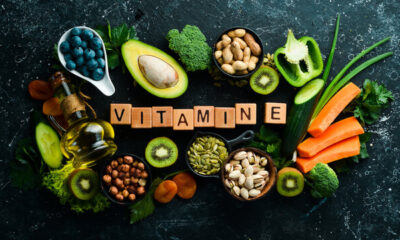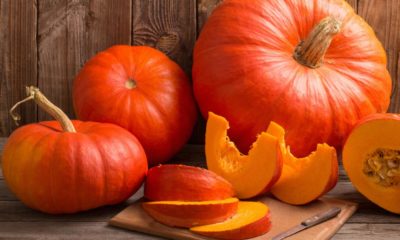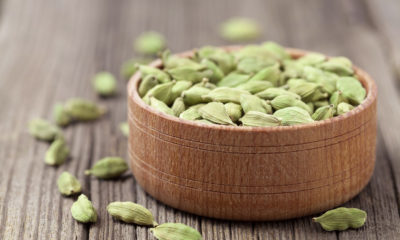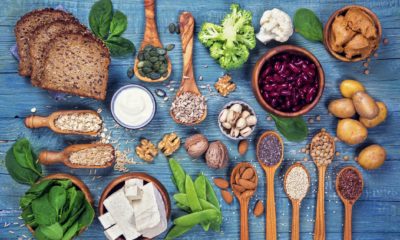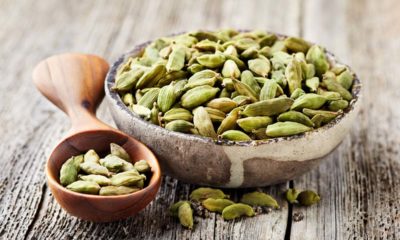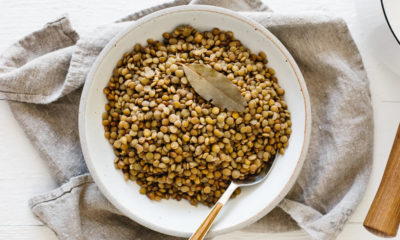Food
FROM FARM TO FORK
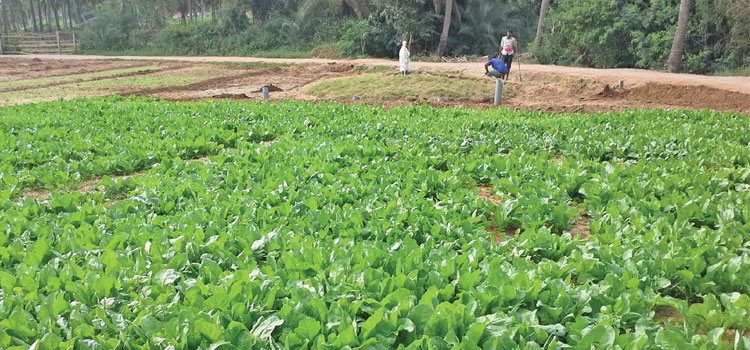
Farming is beginning to revive the glorious position it once enjoyed, and back2basics tells us how
Words by Vaibhav Photographs from Various Sources
Walk into any store and you are likely to come across more organic products than ever before. But how many of us are aware of its authenticity. Most often, consumers are urged to buy a beautifully-romanticised story with no verification. Back2basics, a Bengaluru-based farmto-fork company is a fresh breeze of awakening. “From our farm to you – on the same day” is their motto. It is no surprise then that the company is fulfilling over 200 orders a day with 60 percent repeat customers. We catch up with founder and chief farmer of back2basics, S Madhusudhan, an IIM-B alum and former advertising professional, who tells us more about this concept.
Tell us more about back2basics and your products.
Spread over 100 acres in Bengaluru, Back2basics practices chemical-free agriculture, selling 90 varieties of seasonal produce in four categories – fruits, vegetables, greens, and exotics to clients that include large corporate organisations, retail chains, and independent organic suppliers. We sell our produce on our e-commerce site, where it goes under the brand name of back2basics. Our EU-certified products are exported to Europe and Singapore. We have also introduced a unique concept of experiential farming for our consumers to come see high-quality organic production, learn about the inputs we use and even pick their own produce.
How did this idea come about? What made you leave behind a lucrative career for this venture?
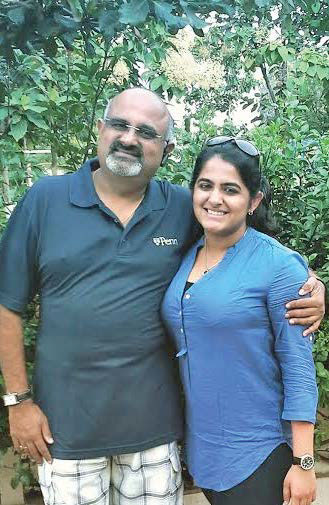
My daughter Bhairavi and I started this venture. I left a corporate job in the marketing and advertising industry and Bhairavi was previously working for multinational corporations in management and strategy consulting. I realised Bangaloreans have access to many different varieties of fruits and vegetables, but very few people are actually buying fresh produce grown using natural, sustainable methods, directly from the farmer. After personally witnessing our local vegetable vendor washing carrots using sewage water, I decided it was time to make a change. And, back2basics was born. Bhairavi recently launched back2basics’ B2C operations and enjoys growing, eating and selling chemical-free, natural, healthy food.
How organic farming is done?
We at back2basics aim to reconnect with nature, bringing back ancient techniques that were used by our forefathers but are now forgotten. Which is why all our produce is free of chemicals, artificial fertilisers/ pesticides and GMOs (genetically modified organism)- we use only organic inputs from seed to harvest. It takes approximately two years of soil preparation to ensure that it is fully chemical-free before commercial organic production can begin. Our preferred natural fertiliser is gobar slurry (cow manure in liquid form), which we source from Gou Ashram, run by the Shri Ramachandrapura Mutt. The ashram is dedicated to the preservation of indigenous cows. We also use oil cakes made from neem, hone and sesame, which we procure from a charitable organisation dedicated to the upliftment of destitute women.
What kind of interest have you observed from consumers?
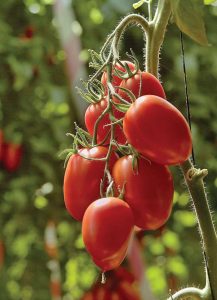
Today 99.9 percent of consumers don’t know the source of the food and beverages that they buy and consume. People buy their footwear from air-conditioned showrooms but don’t hesitate to buy their fruits and vegetables from the footpaths.Sad, but true. We at back2basics are slowly changing consumer perceptions towards the food they consume and start the dialogue about leading a healthy lifestyle. Because ultimately, going organic is a way of life and does not end with just buying fruits and vegetables (smiles).
Can you take us through a day’s work at back2basics?
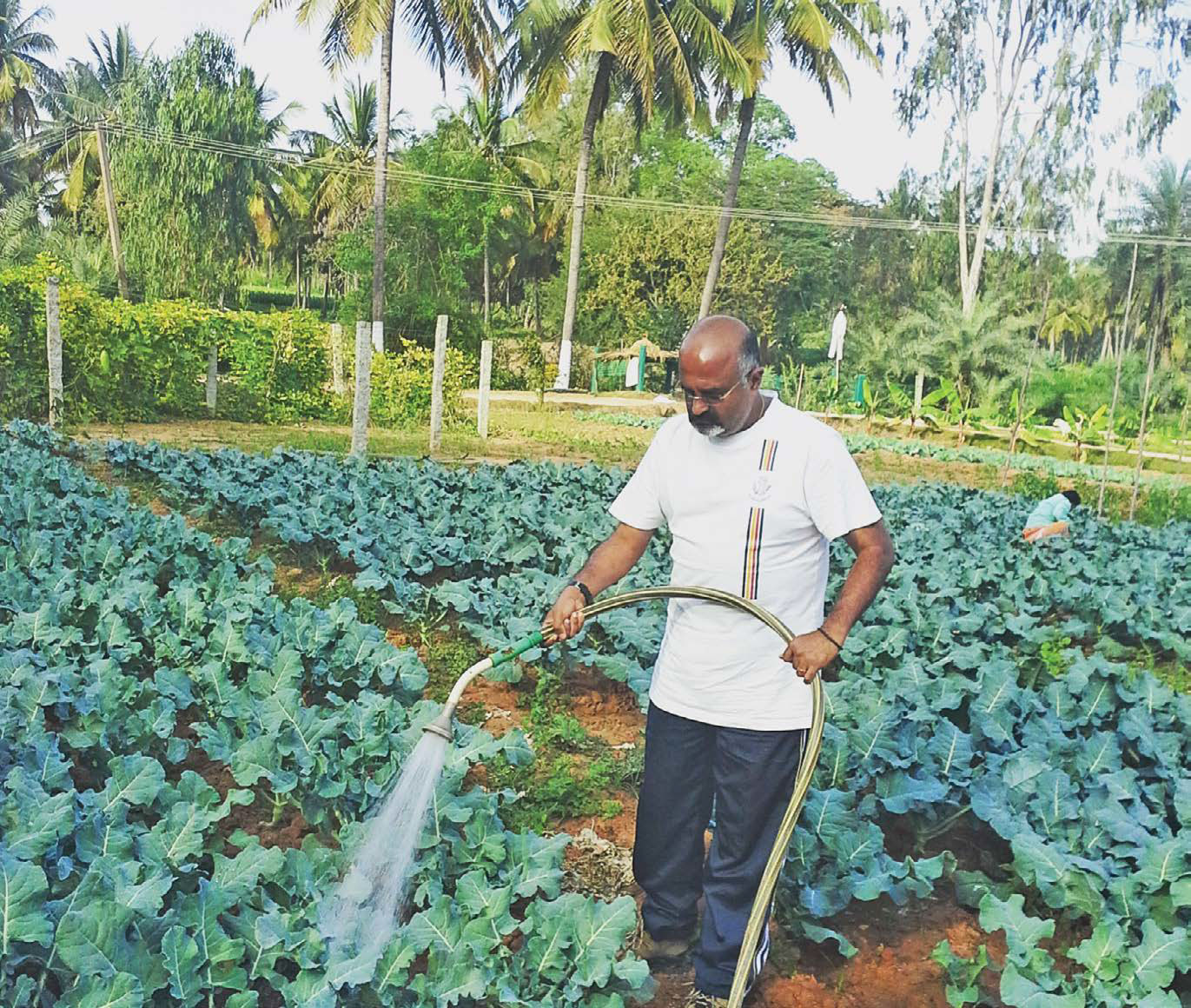
We manage the entire supply chain. Our harvest starts at 1:30 AM in each of our farms. We only harvest based on confirmed orders to minimise wastage. Once the produce is harvested, it is loaded into our trucks and taken to our hub. At the hub, all items undergo two stages of quality control. Once it is graded, cleaned, sorted, and segregated by order for each of our clients.We only use bio-degradable and eco-friendly materials for all our packaging. Right from seed to sapling to tree to harvest to QC and fulfilment, we manage the entire process in-house. If our customer does not accept any item for any quality-based reason, we take it back immediately, no questions asked.
What kind of demand have you observed for organic foods in India?
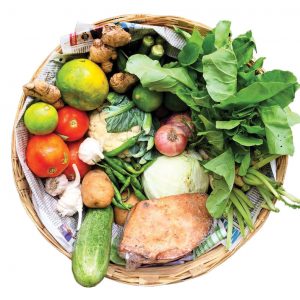
The organic food market in India is growing at 25-30 percent, but the awareness about organic farming is still low here despite huge spending. More growth is expected in future as the government is increasingly supporting organic farming in the form of subsidies and is also planning to roll out a comprehensive policy in this regard. We are currently only able to fulfill only about 80 percent of our total demand. The passionate farmer says that the biggest milestone that they have achieved (and continue to achieve), is really in connecting the end consumer to the source of their food. Achieving this has taken many years of effort, time and of course investment, along with significant operational challenges. Because ultimately, going organic is a way of life.
Food
Benefits of Including Crab in your Diet
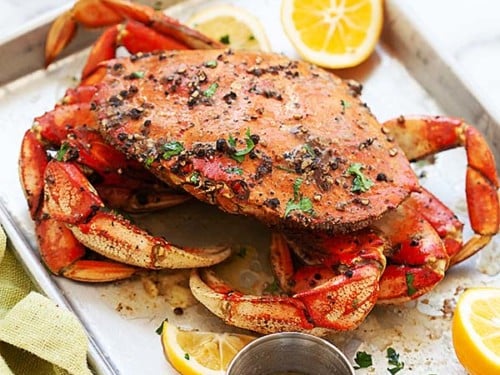
Crab has all the attraction of seafood without the fishy flavor that some people want to avoid. It is delightfully salty with a delicate mineral sweetness. Crabs were reportedly among the foods that coastal societies eaten a hundred years ago. On the menus of the greatest restaurants today, it stands out as the highlight dish. Crab is famous for its distinctive, exquisite flavor as well as for the health benefits it provides.
Omega-3 fatty acids and protein are abundant in crabs. The Food Experts advise two servings of fish and seafood every week, which is not difficult.
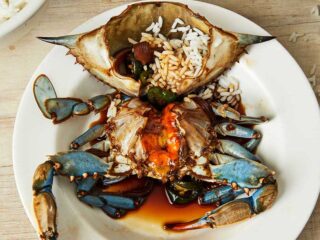
Good Protein Source
Crab is a low-fat, nutritious protein source that boosts metabolism and gives you energy. In reality, crab has less saturated fat and about the same amount of protein per 100 grams as other meats.
Strengthens Heart Health
Consuming a lot of crab meat can actually benefit your cardiovascular system. The Omega-3 fatty acids, zinc, and protein found in crab are all beneficial sources of lowering cholesterol. Having lower cholesterol lowers your chances of heart attacks and strokes.
Increases Brain Activity
Crabs are healthy for you since they are a high source of selenium, vitamin B2, copper, and other vital vitamins and minerals. Together with omega-3 fatty acids, these nutrients support healthy brain ageing and reduce the risk of dementia. They aid in defending against oxidative stress, inflammation, and other elements that may have an impact on the growth and health of the brain.
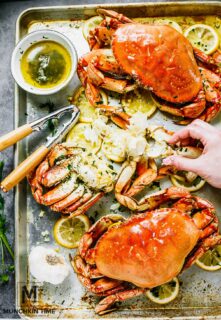
Strengthens bones
You may already be aware of the significance of calcium for bone health. However, did you realize that phosphorus plays an equal role? Due to its high phosphorus content, crab flesh can aid in the development of strong, healthy teeth and bones.
Contains selenium
Compared to other meats, crab offers a substantially higher supply of selenium. As an antioxidant, this necessary mineral not only assists in preventing cell damage from free radicals but also strengthens your immune system. Selenium aids in the regulation of your metabolism and is essential for healthy thyroid function.
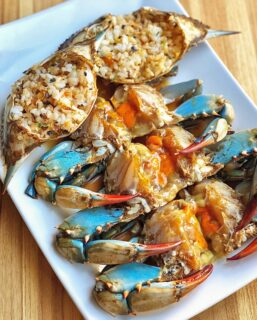
An aphrodisiac
The aphrodisiac property of crab meat promotes libido and sexual energy. They have high quantities of zinc and substances that increase estrogen and testosterone levels, enhancing sexual desire.
Makes the blood flow faster
Copper is yet another significant mineral present in crab meat. One significant advantage of copper is that it facilitates the body’s absorption of iron, which enhances the creation of red blood cells. After injuries and illnesses, proper circulation aids in the healing process.
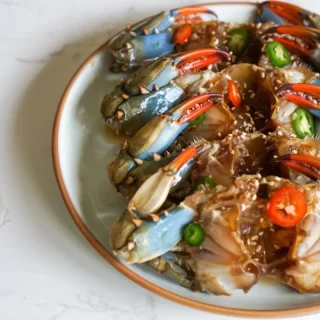
Consuming excessive amounts of crab can have certain unfavorable impacts, just like with most other foods. If you eat too much of some of the nutrients in crab, such copper and zinc, you could get sick. Crab, however, is a fairly nutritious item to eat in moderation unless you have a seafood allergy, and adverse effects are uncommon. Before consuming any seafood, always make sure you don’t have any allergies.
Food
The Taste Of Malayali Kitchen In Sweden
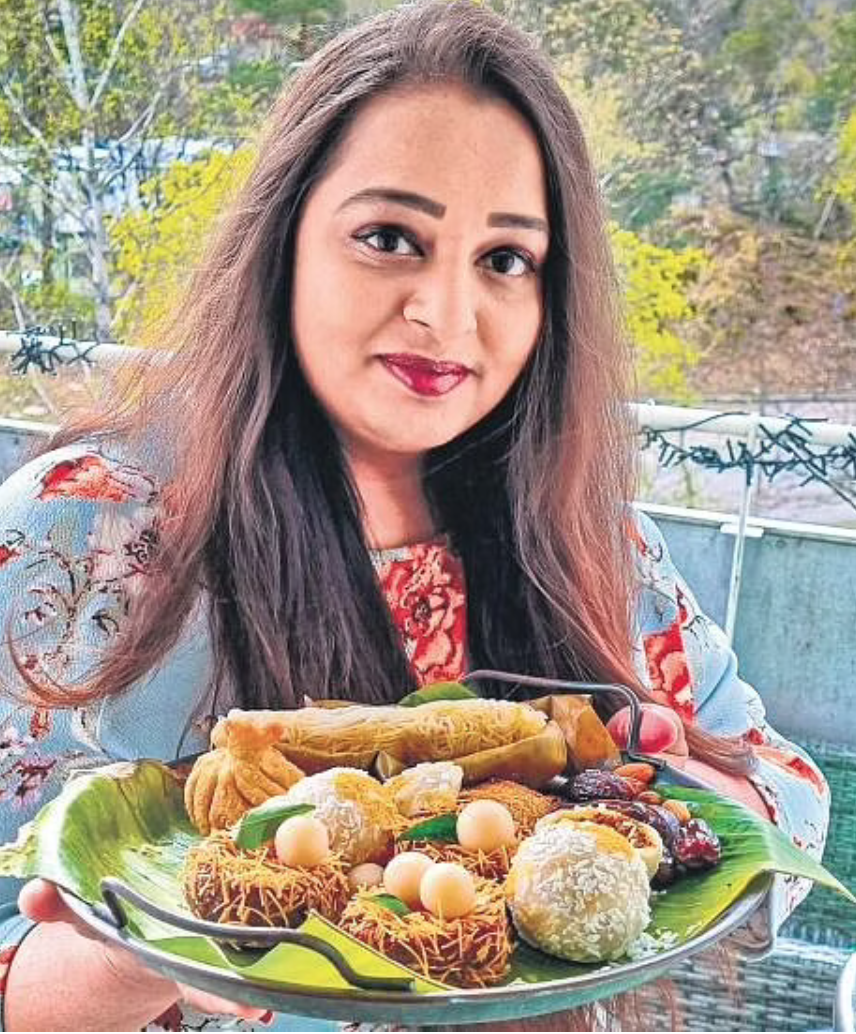
A Kochi-based malayali is creating a sensation by preparing Kerala Cuisine in the foreign swedish kitchen. Devi Nair, who has been settled in Sweden with her husband for almost 10 years, wanted her daughter to experience the delicacies of the Malyaali culture along with her International palette. The sense of homesickness and nostalgia has a part to play in this venture as well. In recent years, as the pandemic hit she chose to share her cooking extravaganzas on Instagram which led her to become more known to the public. Her recipes featured celebratory treats like the Bengali confection Rosbora, local parotta, and non-vegetarian Kerala foods that are popular on social media because they’re simple to make yet delicious to eat and look at. Devi whips up a storm of authentic Kerala delicacies during Malayali festivals. Tender, plump unniyappam, spongy kozhukkatta, rice dumplings, Vishu ada, and Vishu katta are just a few of the items on her Vishu menu this year. She prepared undaputtu with spicy prawn filling, kilikkoodu with meat and egg white, and ammini kozhukatta, a spicy rice dumpling, for Eid. It is also heard that she is planning to launch her own bakery in Sweden as well.
Words By : Goutham Satheesh
Food
Some Flavourful Delights to Savour this Festive Season

Vishu and Easter festivities are around the corner. Along with dressing up and gathering around for some fun family time, you would definitely want to indulge in these simple but festive special treats.
Lilly’s Pattisserie
What if we told you could have Payasam cakes? Yes. You heard that right. The Lilly’s Patisserie, Thrissur is offering Payasam cakes on it its Vishu Special menu as a distinct highlight. Try out their Palada and Pazham Pradhaman cakes which are available in two sizes.They have also got you covered for Easter with a range of Hot Cross Buns from traditional to chocolate and candy berry flavours. You can also spice up your Easter treats with their artisanally crafted Easter Eggs.
View this post on Instagram
Pandhal Cake Shop
The Pandhal Cake Shop, Kochi is shelling out some amazing Easter Egg Surprises this Holy Season. Their marzipan-based eggs come in varied sizes and colours vibrant enough to cheer the grimmest of the lot. Also, check out their Easter Egg Baskets that are sure to surprise you!
View this post on Instagram
Lebanese Grill
No Easter is complete without some spicy meat-based main course to savour. This Kottayam-based Arabian restaurant is all about gifting your loved ones with some flavourful rice for the festive season. This Easter they are introducing the Mutton Cask Biriyani. The cask comes along with pappad, pickle and raita. These are only available on a pre-order basis. So, what are you waiting for? Hurry up and order now.
View this post on Instagram
Words By: Mariam Thankam Mohan
-

 Entertainment3 months ago
Entertainment3 months agoThe Stunning looks from Bhagya Suresh’s Wedding
-

 Fashion3 months ago
Fashion3 months agoMost Discussed Ajrakh Saree of Alia Bhatt
-

 Entertainment3 months ago
Entertainment3 months agoThe Most Stylish Guests of Bhagya Suresh Reception
-

 Entertainment4 months ago
Entertainment4 months agoEverything about the Ira Khan wedding that is out of the norm
-

 Entertainment3 months ago
Entertainment3 months agoBridal Bliss : All Bridal Looks of Swasika Vijay
-

 Entertainment3 months ago
Entertainment3 months agoAll About The Dreamy Pre Wedding Invite Of Anant Ambani & Radhika Merchant
-

 Fashion3 months ago
Fashion3 months agoMajor Denim Trends You Need To Know in 2024
-

 Entertainment3 months ago
Entertainment3 months agoBest Looks from Golden Globes 2024


